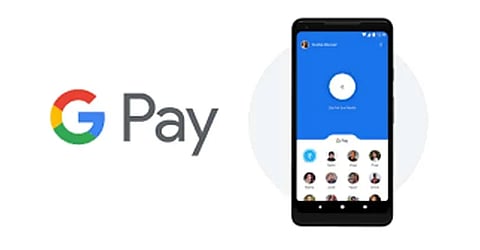

Google Pay, the top 5 most used UPI apps in India, recently shared significant guidelines to protect its clients from fraud. In a Google for India event, the company raised concerns regarding online transactions. Despite the fact that it's a major and trusted application, it urged that clients should be cautious of dubious activities that might be fraudsters.
Google Pay uses smart technology to catch any suspicious activity, but users should also understand their roles and do their part. It's important to be cautious while using screen-sharing apps during transactions. These applications permit others to see what's on your telephone, and fraudsters can undoubtedly abuse them to control your telephone, see your card details, or steal any significant codes.
Likewise, Google Pay reminds clients never to download outsider applications and report any suspicious activities to them. Remaining safe is a joint effort between the app and its users.
Google Pay is a major part of UPI installments in India, showing how much people like using it for digital payments. The app makes sure to use advanced technology and smart measures to quickly spot and stop any suspicious transactions, keeping users' transactions safe. Google Pay also works together with other companies in the industry to make digital payments safer for everyone. The application's prominence is an indication that individuals trust it for a smooth and secure digital payment experience.
Google Pay wants to ensure clients stay safe even with all the extravagant technologies they use. They say clients genuinely must be cautious and adhere to specific guidelines to decrease the possibility of awful things occurring, similar to fraud.
One significant rule they have is to close all applications that let others see your screen while you're making a transaction. Applications like AnyDesk and TeamViewer, which are generally used to assist with fixing issues on your telephone from a distance, can be hazardous on the grounds that they give full control of your telephone to another person.
Also, Google Pay wants to make it clear why they are saying not to use apps that share your screen during transactions. The reason is, that fraudsters can use these apps to control your phone and make transactions without your knowledge. They can also see important details like your ATM or debit card information and grab the OTPs sent to your phone. Then, they could use all this information to take money from your account without your permission. That's why Google Pay is telling users to be careful and avoid using such apps during transactions.
Likewise, Google Pay believes you should realize that they won't ever request that you download other applications under any condition. This is a significant message from them to ensure clients are sure of what's genuine and what could be a stunt.
If you mistakenly downloaded any other apps, Google Pay suggests closing them before you use the Google Pay app. If someone pretending to be from Google Pay tells you to download such apps, Google Pay advises getting rid of them right away. It's crucial to uninstall and delete any apps that were wrongly suggested to you by fake Google Pay representatives.
To lay it out plainly, Google Pay has assembled definite rules to keep things free from any potential harm when you utilize their application. They're using advanced technology, teaching users about safety, and working with others in the industry to make sure the digital payment system in India is safe and reliable.
Google Pay wants users to feel confident and equipped with the right information and tools to protect their money and personal details from any potential risks.